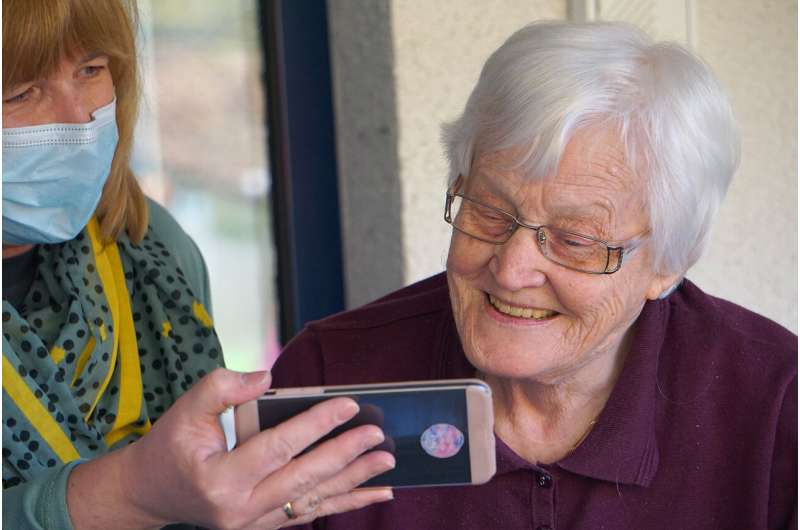A Purdue University nursing professor provides tips on caregiving and how to be prepared during the COVID-19 pandemic. Credit: Georg Arthur Pflueger/Unsplash
As hospitals begin offering non-emergent surgeries and procedures, many limitations remain in place, including those that restrict visitors.
One Purdue University School of Nursing faculty member is providing some tips on how to care for a family member or oneself with extended medical care during the COVID-19 pandemic.
Jiayun Xu, an assistant professor who specializes in chronic disease management and family caregiving in the College of Health and Human Sciences, encourages adults to have a plan in place in case emergency care is needed.
- Pack a bag: Xu says to have a small bag with basic items that you could take with you to the hospital at a moment's notice. Items can be clothing, toiletries, medication lists, medical equipment, insurance information, advance directives and emergency contacts. Families can consult online resources as well for tips on what to put in the travel bag. "The items in your hospital bag will look different than those in another person's bag," Xu says.
- Provide emotional support: With restrictions continuing, if a family member becomes hospitalized, you can still provide emotional support over the phone. "Health care providers often like to ask family members about a loved one's medical history and social history, so being available to answer questions and ask questions about your loved one's care is helpful," Xu says.
- Helping others. Xu says it's important to check in on older adults—either in your family or your neighborhood—but be sure to maintain social distance. "Some ideas for helping are calling to chat and check in, dropping off groceries or food by their door, and most importantly, asking what you can do to help them," she says.
- Assisted living facility guidelines: With assisted living facilities or nursing homes having their own visitor restrictions, family members should call their relatives on a daily basis. They should make sure they are social distancing or are aware of any health issues in the facility, such as a COVID-19 outbreak. "Try to be positive in these conversations. You could use this time as an opportunity to reconnect and learn about your family member's past," Xu says. "Older adults usually enjoy reminiscing about their childhood and youth, and you may learn a new thing or two. If you have children, try including them in on these calls since older adults usually enjoy interacting with children. Emotional support is important during times of uncertainty."
Provided by Purdue University
























